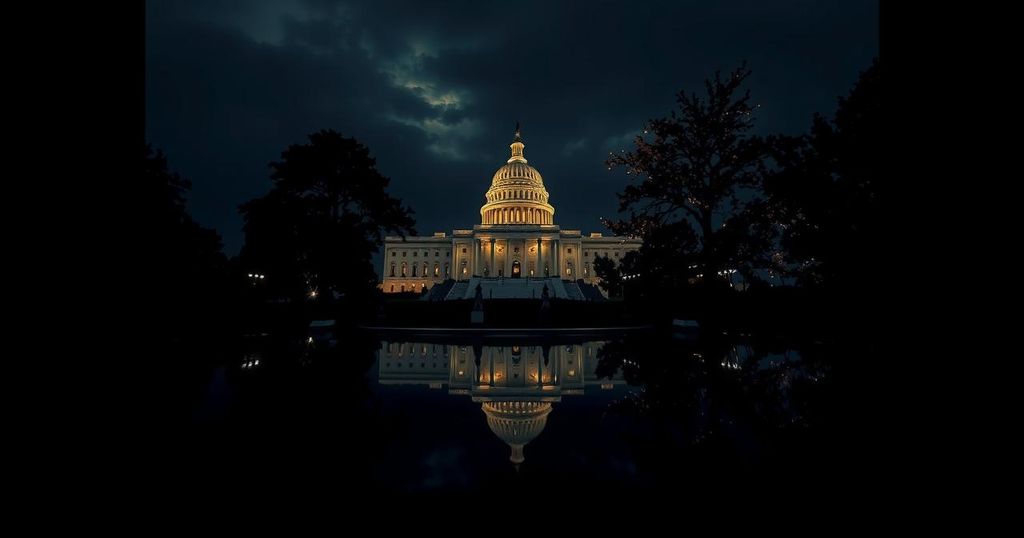Reflections on the 2024 Presidential Election: Stakes, Anxiety, and Hope for the Future

The 2024 presidential election is statistically tied, highlighting contrasting candidates: Vice President Kamala Harris and former President Donald Trump. The article reflects on past elections, the implications of current divisions, and the essential role of civic engagement for the future, emphasizing the need for maintaining shared humanity in the democratic process.
As the 2024 presidential election approaches, with only five days remaining before voters cast their ballots, the political landscape reveals an unprecedented tight race. National polls indicate that the competition between Vice President Kamala Harris and former President Donald Trump is statistically tied, leading analysts to describe the contest in terms reminiscent of a ‘coin toss’ or a battle on a ‘knife’s edge.’ This thin margin is particularly perplexing given the stark contrasts between the candidates. President Joe Biden’s announcement not to seek re-election has set the stage for Harris, a former prosecutor from California, to run against Trump, who has a criminal conviction. Harris represents intellect and a commitment to civility, while Trump has engaged in a campaign marked by divisive and often incendiary rhetoric that many consider not only dishonest but dangerous. The ongoing uncertainty surrounding the election has produced feelings of anxiety among observers and citizens alike, with many reflecting on previous electoral contests and their aftermaths. In recalling the tumultuous elections of 2016 and 2020, I examined the implications of future governance and societal cohesion. In 2016, I delivered a message of hope amid turmoil, advocating for proactive engagement from individuals of faith as a means to bridge growing societal divides. However, the subsequent years of the Trump administration often tested the limits of legality and decency, revealing the significant challenges faced during and after his tenure. As the eve of the 2020 elections approached, I wrote of the necessity of avoiding cynicism and fostering a collective memory of shared humanity, key themes that have resurfaced as we approach the current election. Observations reveal a disturbing trend in the collective imagination, where memories of critical events, such as the January 6 riots, have been either repressed or conveniently forgotten, raising questions about the electorate’s grasp on reality. In analyzing the outcomes that may arise from the impending election, it appears evident that regardless of whether Harris or Trump claims victory, significant tensions will persist. A Harris presidency could imply competent leadership, yet the specter of disruption looms large should Trump lose. Conversely, a Trump victory may wield the possibility of governance driven by loyalty to his dictates rather than principles of decorum or expertise. These reflections evoke a sense of pessimism that is difficult to shake. The prospect for the nation hangs in balance, prompting introspection about our collective responsibilities in support of the common good. The call to civic duty and moral obligation remains paramount as we prepare for the elections and their aftermath, ensuring that our actions reflect an understanding of the implications of our choices.
As the United States approaches the 2024 presidential election, the race has become historically close, prompting widespread anxiety and reflection on previous elections. The contrasting profiles of the candidates—Vice President Kamala Harris and former President Donald Trump—highlight significant ideological divides and concerns about governance. The article explores the implications of past elections on societal cohesion and the moral responsibilities of individuals during times of political strife.
The 2024 presidential election stands as a critical juncture in American political history, marked by an exceptionally tight race that evokes concern among the populace. Regardless of the outcome, the necessity of active participation and the commitment to the common good remain vital. As citizens prepare to cast their votes, it is essential to acknowledge the weight of this responsibility, ensuring that post-election efforts are focused on fostering unity and addressing societal needs.
Original Source: www.ncronline.org








